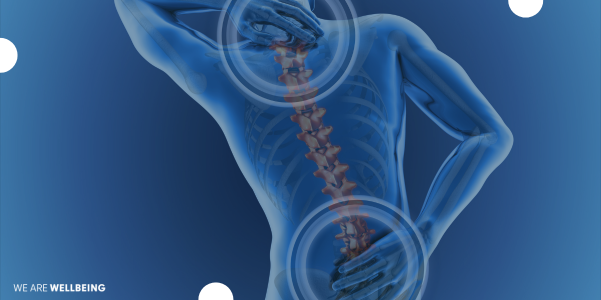Bowel cancer is currently the 4th most common cancer in the UK, here at We Are Wellbeing, we are using this opportunity to learn more about the disease, and to raise awareness. In this blog, we explore what it is, what the risk factors are, and how to spot the signs. But first, let’s look at some of the statistics…
- Someone is diagnosed with bowel cancer in the UK every 15 minutes.
- Positively, more than 9 in 10 people survive bowel cancer when it is diagnosed at the earliest stage.
- Around 95% of cases are diagnosed in those aged over 50, but any age can be affected.
- Bowel cancer affects both men and women, with 1 in 15 men, and 1 in 18 women being diagnosed during their lifetime.
What is bowel cancer?
Bowel cancer, also known as colorectal cancer affects the large bowel, which is made up of your colon and rectum. The large bowel is a part of the digestive system and is responsible for removing food waste from the body and absorbing water.
How can I reduce my risk?
The cause of all bowel cancer cases is not known, but there are some things that can increase and decrease your risk. Not all of these are in our control – being over the age of 50, having a family history of bowel cancer, having a history of non-cancerous growths in the bowel and having IBD (Inflammatory Bowel Disease) such as Crohn’s.
However, it is believed that roughly half of all cases could be prevented by leading a healthier lifestyle. Here are some things to think about:
Diet
If you eat a lot of processed and red meat, you could think about reducing these as they are linked to an increased risk of bowel cancer. Increasing chicken, fish, beans and pulses in your diet will ensure you are still getting enough protein, along with may other benefits. Fibre is also key to bowel health as it helps everything to move through your digestive system and adds bulk to your poo, ensure you are eating plenty of fruit, vegetables and wholegrains. Hydration is important for bowel health too; you should aim for around 2L of fluid per day. Check out last month’s blog on hydration for tips on how to achieve this.
Maintaining a healthy weight can also reduce your risk, small nutritional changes and regular physical activity can support this.
Exercise
Being physically active has so many health benefits, so no surprise that a lower risk of bowel cancer is one! Find something that you enjoy and build it up over time, ideally you want to aim for 150 minutes of activity each week. This could be walking, dancing, the gym, gardening, walking the dog…anything that gets you moving.
Other factors
Alcohol is linked to a number of cancers, if you drink, aim to consume no more than 14 units per week. The Drink Aware website has some great tools for working out your alcohol intake. Smoking is another risk factor and the NHS website can help you to find stop smoking support in your local area.
What signs should I look out for?
There are a number of symptoms that you can look out for, these don’t mean that you have bowel cancer, but it is still important to get them checked out.
- Any changes to your toilet habits, this could include constipation, diarrhoea, or going more or less often.
- Blood coming from your bottom, or blood in your poo, this could look red or black.
- Unexplained weight loss.
- Unexplained feelings of fatigue.
- Other symptoms could include a stomach ache, bloating and a lump in your tummy.
If you are experiencing the above, speak to your GP. As mentioned earlier, survival rates are very high when bowel cancer is caught early.
CONCLUSION
Bowel cancer is common, but survival rates are extremely high if it is caught at the earliest stage. If you have any concerns or symptoms, speak to your GP, who may send you for further tests. If you want to learn more about bowel cancer, or have been diagnosed, Bowel Cancer UK has some fantastic information and resources.
We Are Wellbeing also offer a number of workshops and webinars on nutrition, exercise, weight management and much more. For more information or to book, please get in touch.







